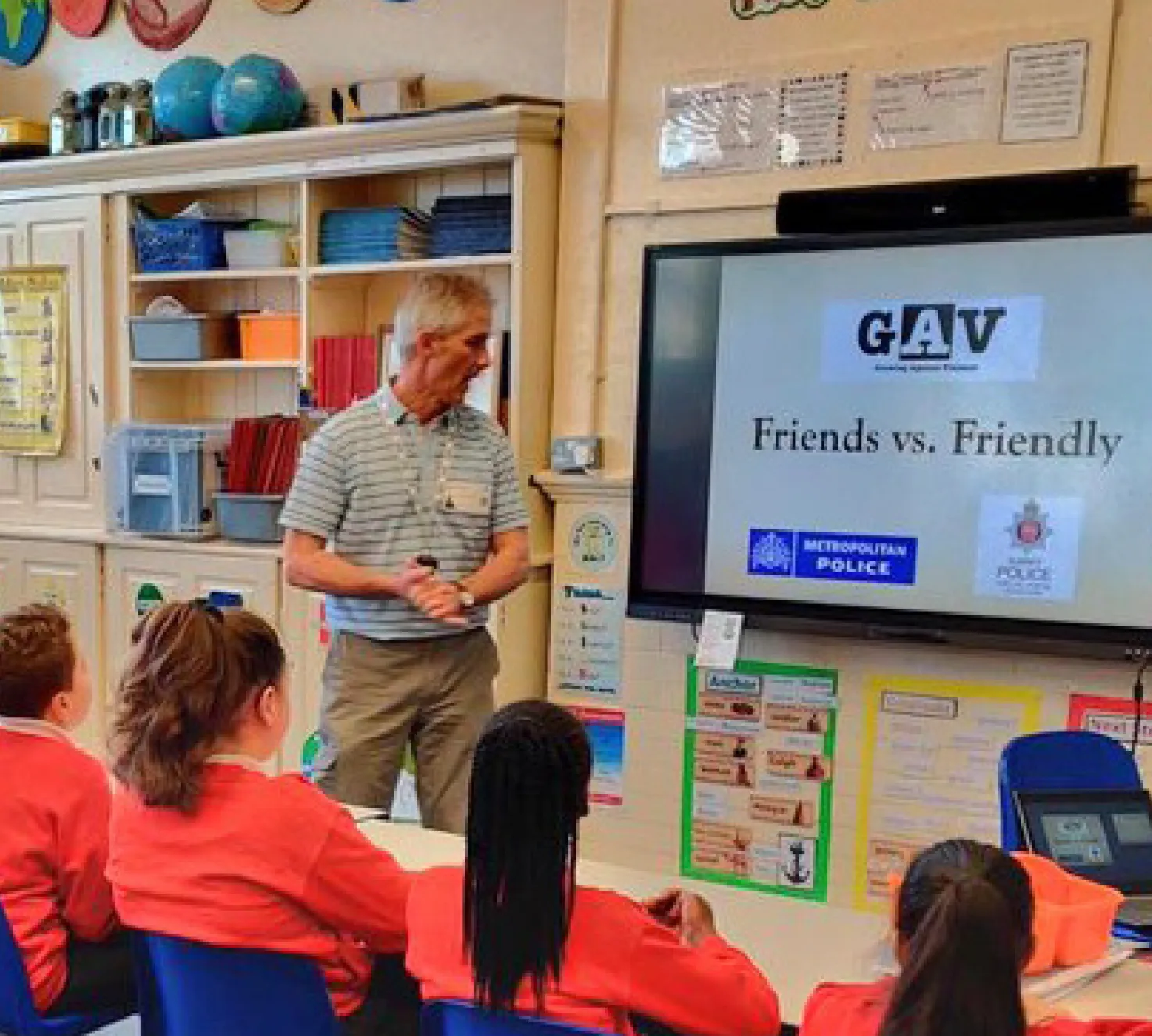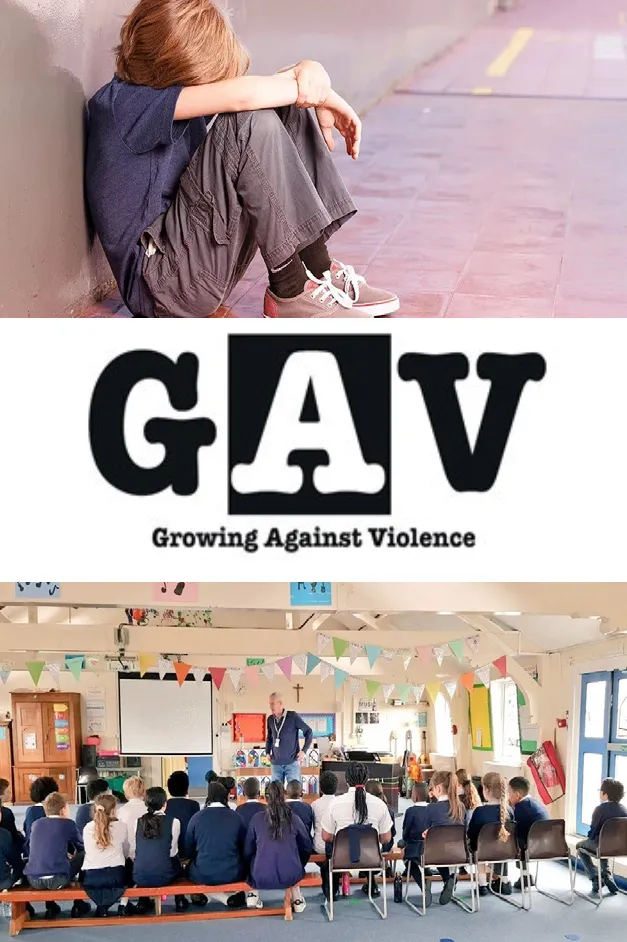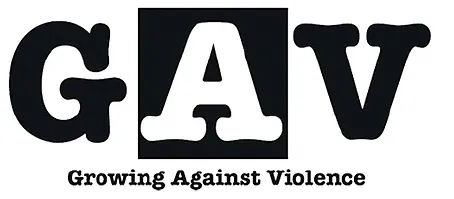
Growing Against Violence (GAV) is a charity that helps prevent and protect against violence and exploitation by children, on children. We deliver a developmentally appropriate curriculum at the reachable moments in a child’s life to raise awareness of risk and give children the skills they need to make positive choices. Since 2008 our sessions have been delivered to over 275,000 students in more than 1400 Schools and Colleges across England.
GAV sessions are delivered by specially trained facilitators, to class size groups. The universal delivery model is integral to what we do, as we aim to reach and influence all young people in order to raise awareness of risk and give all children the skills they need to make positive choices.
Our 10-session curriculum has been developed in conjunction with leading criminologists and is regularly updated to incorporate the latest themes and trends young people are highlighting to us.
In these workshops, we address the root causes of violence, and work on keeping young people out of gangs, exploitative peer-on-peer relationships and away from antisocial behaviour.
Why GAV is needed
Before I address, what we do, it is important to highlight why GAV is needed. Sadly, we see that children and schools are confronted by the following issues:

The reality is that children face multi-faceted risks that are present both on-line and on-road. County lines, gang recruitment, sexual harassment and violence, social media, knife crime, sharing nude imagery and cyber bullying do not happen in isolation, and there are complex relationships between all these risks.
Young people need to be supported at a very early age, as the decisions they make will directly impact on what risk and harm they may be subject to. Young people receive an evidence-based curriculum to raise awareness of the risks associated with child-on-child abuse and exploitation. We insist on the children’s schoolteachers being present in the classroom so can support them identify risks that they otherwise may not be aware of, as it is often the children who know more about the issues we discuss.
It is imperative that we enable children to raise concerns and seek help and support. Disclosures to our facilitators are incredibly common. We work in partnership with schools to address these complex safeguarding risks. By collating the themes and trends from the disclosures received, it gives us the opportunity to be an authoritative voice on emerging safeguarding issues relating to children.
What we deliver
In School Years 6 and 7 the focus is on how gangs work; how they recruit, and how they exploit young people. To prevent violence, we need to stop young people becoming gang involved. To do this we debunk the mythology that gangs protect you, give you a sense of belonging, allow you to earn respect and live a glamorous lifestyle.
Social Media use by young people is covered in depth. For Primary students, sensitive issues relating to social media, grooming, cyber bullying, gaming and inappropriate images are examined and young people are made aware of the law surrounding these issues and are empowered to report abuse if they encounter it. For Secondary students the aim of the workshop is to reduce peer-on-peer bullying and understand sexting, grooming and how to get support. Students are encouraged to recognise that what happens online can hurt them offline.
In School Years 8, 9 and 10 the focus moves to the relationships young people have with police (via stop and search scenarios) and with each other (both on-line and off-line) with a particular focus on sexual exploitation and gendered power dynamics. Sexting and cyberbullying are explored in depth, as are issues around ‘consent’ in a sexual relationship.
A bespoke session on Knife Crime is delivered in Further Education Colleges. Students explore why people stab: whether this be through fear, for financial gain, for protection, through criminal exploitation by gangs, as a result of the drug supply or for retaliation.
This session makes it clear that a wide range of people are affected by knife crime and how it devastates the lives of young people, their families and the professionals who work with young people.
We also have a fantastic Professional Session which seeks to educate professionals about ‘how gangs work’ and how gang culture influences and adversely affects young people. The aim is to identify what gangs are and how they differ from peer groups. Delivered by highly experienced facilitators, the session examines how gangs are organized, how they make money, and how they recruit. It identifies how violence is used by gangs and gang members and establishes how gangs and gang members ‘brand’ themselves both on-line and off-line, exploring ‘rap-trap’ videos and the growing concerns relating to ‘county lines’ drug dealing.
Parents and Carers explore issues relating to social media, sexting, online grooming, gangs, serious youth violence and conversations relating to sex and sexuality. The session celebrates the fact that the vast majority of young people lead positive lives, but also promotes active parental engagement, boundary setting, and the importance of collaboration and communication between families, schools, and communities to end gang and serious youth violence.
Who we are
Growing Against Violence is unique in that is a multi-disciplinary, cross profession partnership seeking to prevent violence and exploitation. The Board of Trustees brings together senior professionals from trauma surgery, academia, police, law, accounting, management consultancy and information technology. The curriculum is co-authored by Professor James Densley, one of the world’s leading criminologists and Dr Michelle Lyttle-Storrod. Facilitators of sessions are drawn from a diverse background including retired police officers, teachers, youth workers and those from a theatre in education background.
The curriculum has been statistically proven via a longitudinal outcome evaluation to improve confidence of young people in Police and reduce adherence of young people to the street code.
What next?
Those involved in developing, delivering and providing the strategic oversight of GAV have agreed to provide regular updates to this publication to provide insights gained in collaborating to address youth violence. We hope this will be of interest to you.

Allen Davis
Chair of the Board of Trustees and Co-Founder, Growing Against Violence

www.growingagainstviolence.org.uk
Bookings via: operations@growingagainstviolence.org.uk